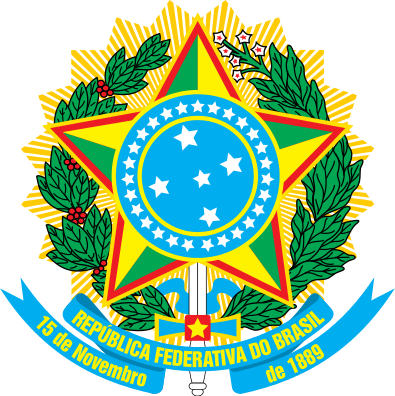Location
Following more than three centuries under Portuguese rule, Brazil gained its independence in 1822, maintaining a monarchical system of government until the abolition of slavery in 1888 and the subsequent proclamation of a republic by the military in 1889. Brazilian coffee exporters politically dominated the country until populist leader Getulio VARGAS rose to power in 1930. By far the largest and most populous country in South America, Brazil underwent more than a half century of populist and military government until 1985, when the military regime peacefully ceded power to civilian rulers. Brazil continues to pursue industrial and agricultural growth and development of its interior. Having successfully weathered a period of global financial difficulty in the late 20th century, Brazil was seen as one of the world’s strongest emerging markets and a contributor to global growth. The awarding of the 2014 FIFA World Cup and 2016 Summer Olympic Games, the first ever to be held in South America, was seen as symbolic of the country’s rise. However, since about 2013, Brazil has been plagued by a shrinking economy, growing unemployment, and rising inflation. Political scandal resulted in the impeachment of President Dilma ROUSSEFF in May 2016, a conviction that was upheld by the Senate in August 2016; her vice president, Michel TEMER, will serve as president until 2018, completing her second term.
Brazil is a federal presidential republic.
Source: CIA World Factbook
Members:
Resources
Displaying 96 - 100 of 180Decree of 11 January 2002 declaring of social interest, for the purposes of the agrarian reform, some properties in the State of São Paulo.
This Decree, composed of 4 articles, declares of social interest, for the purposes of the agrarian reform, the rural property "Fazenda Tapir” located in the Municipality of Suzanópolis, São Paulo State. The Decree establishes the competence of the National Institute for the Agriculture Reform (INCRA) to promote and supervise the expropriation of the aforementioned rural lands.
Implements: Act No. 8.629 regulating rural land property in compliance with the Agrarian Reform. (2017-07-11)
Decree of 15 January 2002 declaring of social interest, for the purposes of the agrarian reform, some properties in the State of Minas Gerais.
This Decree, composed of 4 articles, declares of social interest, for the purposes of the agrarian reform, the rural property "Fazenda São Domingos I", located in the Municipality of Tupaciguara, Minas Gerais State. The Decree establishes the competence of the National Institute for the Agriculture Reform (INCRA) to promote and supervise the expropriation of the aforementioned rural lands.
Implements: Act No. 8.629 regulating rural land property in compliance with the Agrarian Reform. (2017-07-11)
Decree of 19 March 2002 declaring of social interest, for the purposes of the agrarian reform, some properties in the State of Piauí.
This Decree, composed of 4 articles, declares of social interest, for the purposes of the agrarian reform, the rural property "Alecrim e Gameleira", located in the Municipality of Altos, Piauí State. The Decree establishes the competence of the National Institute for the Agriculture Reform (INCRA) to promote and supervise the expropriation of the aforementioned rural lands.
Implements: Act No. 8.629 regulating rural land property in compliance with the Agrarian Reform. (2017-07-11)
Decree of 11 January 2002 declaring of social interest, for the purposes of the agrarian reform, some properties in the State of Minas Gerais.
This Decree, composed of 4 articles, declares of social interest, for the purposes of the agrarian reform, the rural properties "Fazenda Canto" and "Fazenda Rio Matsu I" located in the Municipality of Unaí, Minas Gerais State. The Decree establishes the competence of the National Institute for the Agriculture Reform (INCRA) to promote and supervise the expropriation of the aforementioned rural lands.
Implements: Act No. 8.629 regulating rural land property in compliance with the Agrarian Reform. (2017-07-11)
Decree of 25 March 2002 declaring of social interest, for the purposes of the agrarian reform, some properties in the States of Paraíba and Sergipe.
This Decree, composed of 4 articles, declares of social interest, for the purposes of the agrarian reform, the following rural properties: "Fazenda Campos Novos", in the Municipality of Barra de Santa Rosa, Paraíba State; "Fazenda Novo Paraíso", in the Municipality of Poço Redondo, Sergipe State; "Fazenda Boa Esperança", in the Municipality of Poço Redondo, Sergipe State. The Decree establishes the competence of the National Institute for the Agriculture Reform (INCRA) to promote and supervise the expropriation of the aforementioned rural lands.


